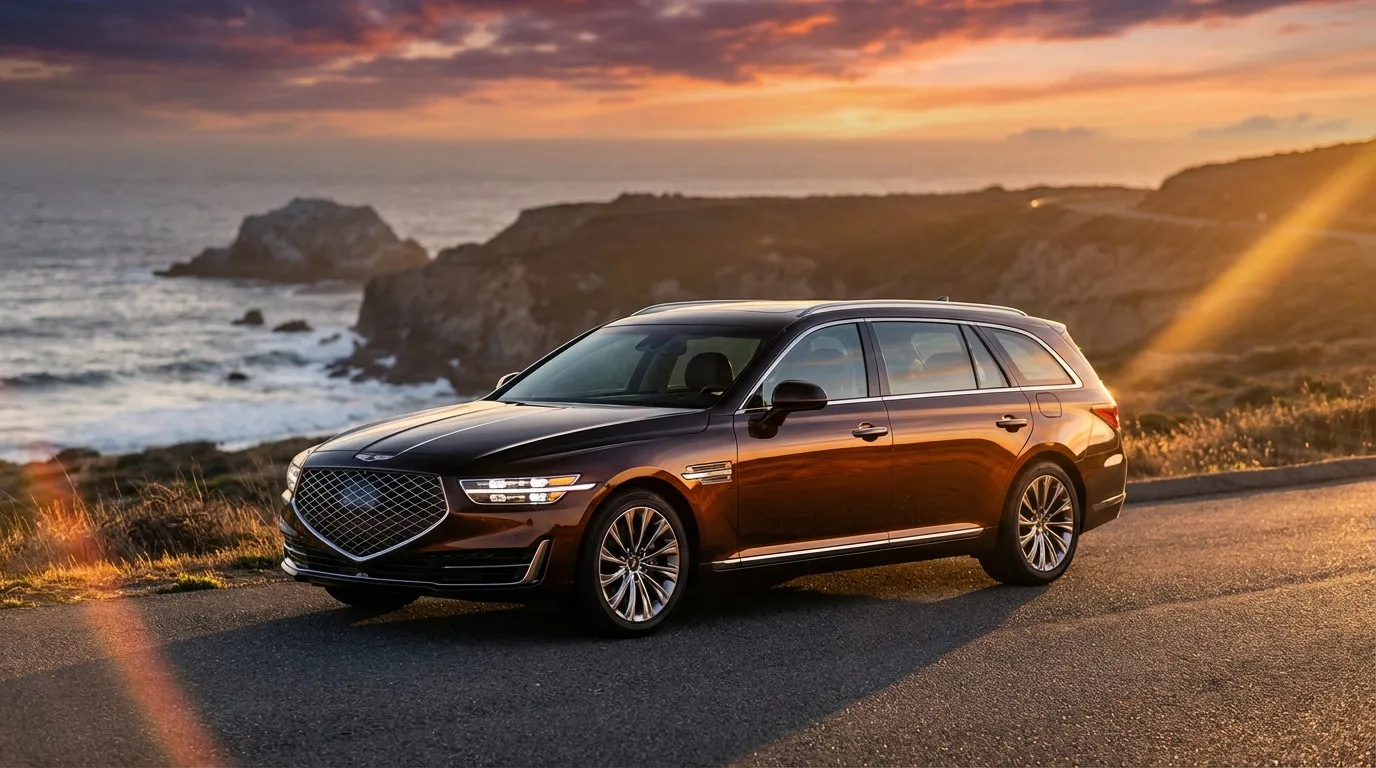While the automotive world was hypnotized by teasers of sports coupes and the promise of the Magma line, Genesis quietly stole the show with something much bolder and more unexpected: the GENESIS G90 WINGBACK concept. This is not just a design exercise; it is a direct declaration of war against Germany’s traditional high-performance wagons. Luc Donckerwolke, the group’s visionary Head of Design, made it clear that this project is not just a distant dream but a real possibility based on market demand that many manufacturers insist on ignoring.

More Than a Concept: An Industrial Reality
Unlike many concept cars that are merely empty fiberglass “shells,” the GENESIS G90 WINGBACK is surprisingly production-ready. Based on the G90 luxury sedan architecture, the wagon shares vital structural points, wheelbase, and suspension mounting. Donckerwolke revealed that the transition from prototype to mass production would require a minimal upfront investment, as the essential “hardpoints” already exist.
This strategy of leveraging luxury platforms to create exclusive variants recalls the precision engineering seen in other premium brands. For example, current hybrid technology manages to deliver 375 horsepower of pure elegance in the Mercedes-Benz GLS 450, proving that comfort and power can coexist. Genesis aims to take this a step further by creating a colossal “Shooting Brake” exceeding 5.2 meters in length.
The V8 Factor and the Quest for Raw Power
The biggest hurdle for the G90 Wingback to take on titans like the Audi RS6 Avant or a hypothetical BMW M7 Touring is the engine. Genesis’s current 3.5-liter twin-turbo V6 with 409 horsepower is competent, but it doesn’t intimidate European competition. However, strong rumors indicate that the Magma performance division is working on something special.
There is talk of developing a new twin-turbo V8, possibly derived from racing programs or the brand’s hypercar concept. If this materializes, the Wingback would cease to be just a pretty face and become a performance monster. It is a risky move in a world that is downsizing engines, but those familiar with engineering know there are controversies surrounding downsizing. It is worth checking out why turbo 4-cylinder engines replaced V6s and V8s and the myths surrounding this swap to understand why a new V8 would be so revolutionary today.
High-Performance Engineering and Global Acceptance
Manfred Harrer, the mastermind behind Genesis R&D, confirmed that the G90 platform is already being reinforced for high-performance variants. The goal is not to create a harsh and uncomfortable track car, but rather a supreme Grand Tourer: communicative steering, responsive damping, and unwavering high-speed stability. It is the kind of engineering that reminds us of legends saying goodbye, such as the farewell to the iconic BMW Z4 Final Edition, where driving purity is the central focus.
Donckerwolke refuted the idea that wagons are only popular in Germany. The success of competing models in the United States proves there is an audience thirsty for exclusivity and practicality. With the possibility of a V8 engine, the Wingback could enter the territory of supercars disguised as family vehicles—a segment where even Lamborghini is challenging the laws of physics with its new Twin-Turbo V8.
If Genesis gives the green light, the G90 Wingback will not just be another car in the showroom; it will be the ultimate proof that the Korean brand fears no one anymore. Accountants may hesitate, but the engineering and design have already proven that it is possible to create an instant icon. In a market saturated with SUVs, an ultra-luxury wagon is the sophisticated rebellion the automotive world needs.
